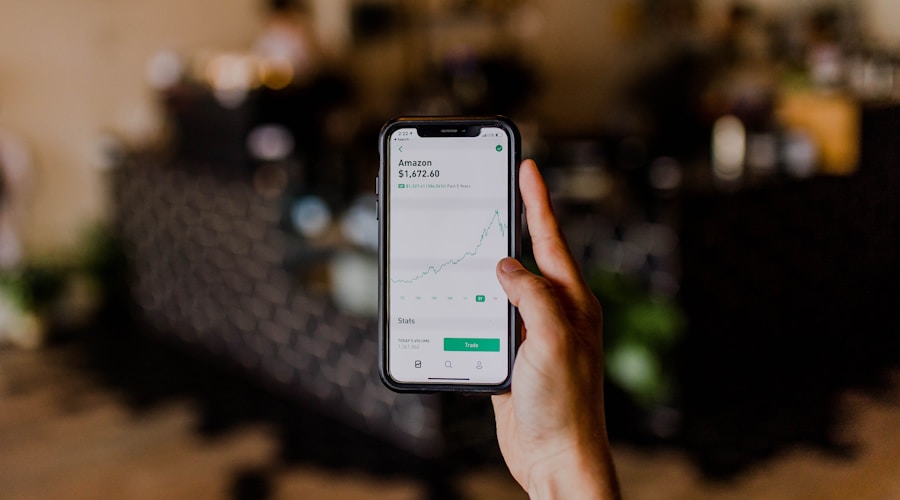If you're new to the world of investing, you may have heard about the potential benefits of investing in gold. Whether you're looking to diversify your portfolio, hedge against inflation, or simply take advantage of the potential growth in the value of gold, investing in this precious metal can be a wise choice.
But where do you start? How do you go about investing in gold? This comprehensive guide is here to help you navigate the ins and outs of gold investments and provide you with the information you need to make informed decisions.
As a beginner, it's natural to feel overwhelmed by the plethora of information out there. But don't worry, we'll break it down for you and guide you through the process step by step. By the time you're done reading this guide, you'll have a good understanding of how to invest in gold and be well on your way to making your first investment.
So, if you're ready to embark on this exciting investment journey, let's dive in and explore the world of gold investments together. Remember, the key to successful investing is knowledge, and we're here to equip you with the information you need to make smart investment choices.
Understanding Gold Investments
So, you're thinking about investing in gold, but you're not quite sure where to start. Well, you're in the right place. When it comes to investing in gold, it's essential to understand the basics before diving in.
Gold has been a store of value for centuries, making it a popular investment choice for many people. According to Warren Buffett, "Gold gets dug out of the ground in Africa or someplace. Then we melt it down, dig another hole, bury it again and pay people to stand around guarding it. It has no utility. Anyone watching from Mars would be scratching their head."
However, it's important to note that gold doesn't generate any income, so it's mainly used as a hedge against inflation and a safe haven during times of economic uncertainty. As Robert Kiyosaki puts it, "Gold is money. Everything else is credit."
In addition to physical gold, you can also invest in gold through gold ETFs, mutual funds, and gold mining stocks. Each option comes with its own set of risks and benefits, so it's crucial to do your research before making a decision.
You may be wondering, why should you invest in gold? Well, as financial expert Brian Tracy says, "Gold is a hedge against inflation and a safe haven in times of financial instability." By including gold in your investment portfolio, you can help protect yourself from market volatility and currency devaluation.
Remember, educating yourself about the ins and outs of gold investments is the first step towards making informed decisions. As billionaire investor Ray Dalio advises, "I believe that it would be both risk-reducing and return-enhancing to consider adding gold to one's portfolio as an alternative to cash." Understanding the role of gold in your investment strategy will help you make the most of this precious metal.
Ways to Buy Gold
When it comes to buying gold, there are several options available to you. Each method has its own advantages and disadvantages, so it's essential to consider your financial situation and investment goals before making a decision.
Physical Gold: One way to invest in gold is by purchasing physical gold in the form of coins or bars. This can be done through a reputable dealer or a bank. However, keep in mind that storing physical gold can be a challenge, and there may be additional costs for security and insurance.
Gold ETFs: Investing in gold exchange-traded funds (ETFs) is another popular option. With ETFs, you can buy and sell shares that represent ownership of gold bullion. This provides a convenient way to invest in gold without the hassle of storing physical gold.
Gold Stocks: If you're comfortable with the stock market, you can also invest in gold mining companies. This allows you to benefit from the potential growth of the company along with the price of gold.
Gold Futures and Options: For more experienced investors, trading gold futures and options contracts can be an alternative. Keep in mind that this method involves a high level of risk and may not be suitable for beginners.
Remember to do your research and consider consulting with a financial advisor before making any investment decisions.
Real life advice: "I prefer investing in gold ETFs because it allows me to easily buy and sell gold without worrying about storage and security." - Experienced gold investor

Setting Up Your Investment Budget
Now that you understand the various ways to buy gold, it's time to determine how much you can invest. Setting up a budget is crucial to ensure that you don't overspend and put yourself in financial strain. As financial expert Dave Ramsey advises, "Investing in gold should be a part of your overall investment strategy, not the entire strategy itself".
When setting up your investment budget, consider your current financial situation and evaluate how much you can comfortably afford to invest. It's important to avoid dipping into your emergency fund or sacrificing essential expenses to purchase gold.
As CNBC contributor Jim Cramer suggests, "You should never invest money in gold that you can't afford to lose. It's a long-term investment and should be treated as such"2 .
One effective strategy is to allocate a certain percentage of your overall investment portfolio to gold. For example, financial advisor Suze Orman recommends, "Aim to invest between 5-10% of your portfolio in gold, depending on your risk tolerance and investment goals"3 .
By setting a clear budget for your gold investment, you can ensure that you are making a financially responsible decision that aligns with your overall investment strategy. Remember, prudent financial planning is the key to long-term success in any investment endeavor.
Timing Your Gold Purchase
When it comes to investing in gold, timing is crucial. As Warren Buffett wisely said, "You want to be greedy when others are fearful. Be fearful when others are greedy." This means that you should consider buying gold when the market is down and selling when it's up.
Gold prices can be influenced by various factors such as economic indicators, geopolitical tensions, and currency movements. It's essential to keep an eye on these factors to determine the right time to make your purchase. For example, if you see that there is instability in the stock market or uncertainty in the global economy, it might be a good opportunity to invest in gold.
Remember, trying to time the market perfectly is extremely challenging. As legendary investor Peter Lynch said, "Far more money has been lost by investors preparing for corrections, or trying to anticipate corrections, than has been lost in corrections themselves." Instead of trying to predict short-term price movements, focus on the long-term trend of gold and invest with a goal of wealth preservation.

Storing Your Gold Safely
When you decide to invest in gold, it's essential to think about how you will store it. Gold is a valuable and precious metal, so it's crucial to keep it safe and secure. Here are some tips to help you store your gold safely:
Consider a Safe Deposit Box: One of the most secure ways to store your gold is by renting a safe deposit box at a bank. This provides a high level of security and protection for your investment. As Warren Buffett, the renowned investor, once said, "Do not save what is left after spending, but spend what is left after saving".
Home Safe or Hidden Storage: If you choose to store your gold at home, consider investing in a good quality safe that is fireproof and waterproof. Additionally, you can create clever hiding spots within your home to keep your gold concealed and protected.
Diversify Storage Locations: It's not advisable to keep all of your gold in one place. Consider spreading your gold across multiple storage locations to reduce the risk of loss in the event of theft or other unforeseen circumstances.
Insurance: Whether you store your gold at home or in a safe deposit box, consider insuring your investment. This will provide you with added peace of mind, knowing that you are financially protected in case of any unexpected events.
Avoid Keeping It In Plain Sight: If you decide to store your gold at home, avoid disclosing this information to others. Keep your investment private to prevent any potential security threats.
By following these tips, you can ensure that your gold investment is stored safely and securely, providing you with peace of mind as you watch your investment grow over time.
Monitoring Gold Market Trends
When you invest in gold, it's essential to stay updated on the current market trends. Monitoring gold market trends can help you make informed decisions about buying or selling gold.
Stay Informed
Keeping track of gold prices can be as simple as setting up price alerts on your smartphone or computer. There are also various financial websites and apps that provide real-time updates on gold prices. By staying informed, you can capitalize on buying opportunities when gold prices are low and selling when they rise.
Understand Factors Affecting Gold Prices
Gold prices are influenced by a variety of factors such as inflation, interest rates, and political instability. Understanding these factors can help you anticipate changes in gold prices. As Warren Buffett once said, "Gold gets dug out of the ground, then we melt it down, dig another hole, bury it again, and pay people to stand around guarding it. It has no utility. Anyone watching from Mars would be scratching their head."
Seek Professional Advice
If you're serious about gold investment, you may want to consult with a financial advisor or broker who specializes in precious metals. They can offer valuable insights and help you navigate the complexities of the gold market.
Be Patient
Gold prices can be volatile, so it's important to be patient and not panic during market fluctuations. As Peter Schiff, a renowned investor, advises, "You don't make money when you buy gold. You make money when you sell it."
By closely monitoring gold market trends, you can make strategic decisions that will maximize your gold investment's potential.

Selling Your Gold
When the time comes to sell your gold investments, it's essential to approach the process with caution and consideration. Selling gold can be a straightforward transaction, but it's crucial to make informed decisions to ensure you receive the best possible return on your investment.
Evaluate the Market
Before selling your gold, take the time to research the current market conditions. Gold prices can fluctuate, so it's wise to monitor the market and wait for an opportune moment to sell. Remember, just as with any investment, timing is key. As financial expert David R. Kammerer advises, "Don't rush into a sale. Take the time to understand the market and make a well-informed decision."
Seek Multiple Appraisals
When you're ready to sell, it's advisable to seek appraisals from multiple sources to ensure you receive a fair price. Sarah Albers, a seasoned gold investor, emphasizes, "Don't settle for the first offer. Shop around and get multiple appraisals to compare. This way, you can feel confident that you're getting a good deal."
Understand the Selling Process
It's important to familiarize yourself with the different selling options available to you. Whether you choose to sell to a reputable dealer, pawn shop, or online exchange, be sure to understand the process and any associated fees. As investment advisor Michael Steinhardt notes, "Take the time to educate yourself on the selling process. Knowing your options will empower you to make the best choice for yourself."
Secure Your Transaction
Once you've chosen a buyer, ensure that the transaction is secure. If you're dealing with a buyer in person, consider meeting in a public place or a secure location. If you're selling online, use a trusted platform with buyer protection policies in place. As financial analyst Danielle Murphy advises, "Protect yourself during the selling process. Only commit to a transaction when you're confident in the buyer's legitimacy."
Plan Your Next Move
After selling your gold, it's essential to consider your next investment or financial move. Take the time to reassess your investment portfolio and explore new opportunities. Financial planner John C. Bogle highlights, "Selling gold can be a pivotal moment for your investment strategy. Use this as an opportunity to diversify your portfolio and set new financial goals for yourself."
Selling your gold can be an empowering decision when approached thoughtfully. By understanding the market, seeking multiple appraisals, familiarizing yourself with the selling process, and securing your transaction, you can ensure a successful and profitable sale. Remember, selling your gold marks a new chapter in your investment journey, so take the time to plan your next move wisely.
Conclusion
Congratulations on completing this comprehensive guide on investing in gold! You have armed yourself with the knowledge and confidence to navigate the world of gold investments.
As Charles A. Jaffe said, "It's not whether you're right or wrong that's important, but how much money you make when you're right and how much you lose when you're wrong". Investing in gold, like any other investment, comes with its own set of risks and rewards. Therefore, it's crucial to approach it with careful planning, research, and a clear understanding of your financial goals.
Remember, gold can serve as a hedge against inflation and currency devaluation, but it should not be the sole focus of your investment portfolio. It's essential to maintain a diversified investment strategy to hedge against unforeseen market fluctuations.
As you embark on your gold investment journey, always keep an eye on market trends, be mindful of the timing of your purchases and sales, and ensure that you are storing your gold securely. Lastly, leverage the expertise of financial advisors and reputable sources to make informed decisions.
Good luck, and may your gold investments bring you prosperity and financial security!

2Dave Ramsey, Financial Peace (1992)
3Jim Cramer, Stay Mad for Life (2007)
4Suze Orman, The Road to Wealth (2001)
5Warren Buffett, The Essays of Warren Buffett: Lessons for Corporate America (1997)
6Peter Lynch, One Up On Wall Street (2000)
7Warren Buffett, The Essays of Warren Buffett: Lessons for Corporate America, 1997.
8Peter D. Schiff, The Little Book of Bull Moves in Bear Markets (2008)
9Warren Buffett, CNBC interview (2009)
10Charles A. Jaffe, "The Stewardship of Wealth" (2012)